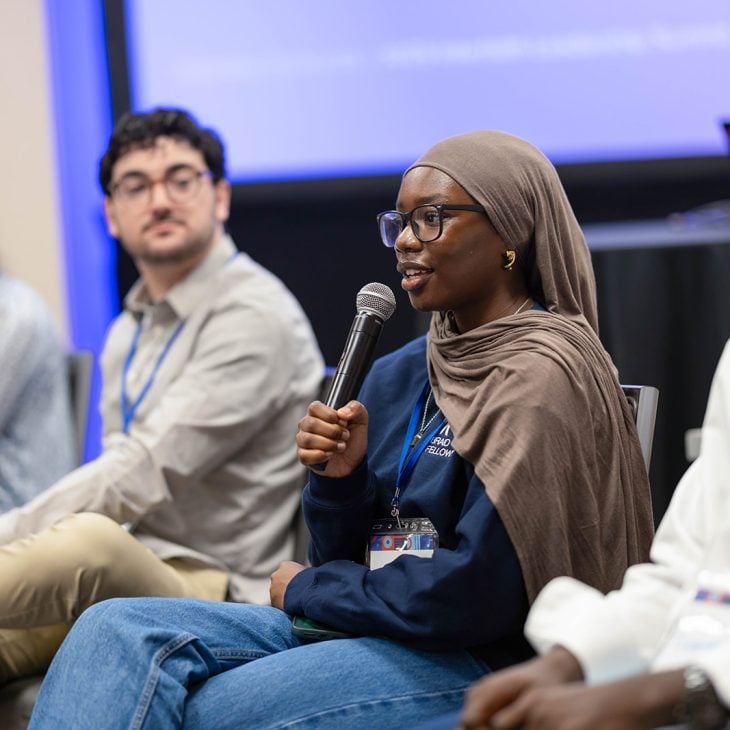
At Interfaith America, we know interfaith cooperation isn’t limited to big stages or official programs. It happens every day. It happens around dinner tables, in classrooms, at community events, and on soccer fields. People practice interfaith cooperation through respectful conversations, acts of compromise, and thoughtful gestures. At its core, interfaith cooperation means respecting others, building relationships, and working together across lines of difference. It’s grounded in values like respect, empathy, and mutual understanding.
We’re gathering stories from people who are living these values. People like you. You can submit a written piece (200-500 words) or a short video through our online form. With your permission, your story may be featured in social media spotlights, newsletters, or other educational resources. Each story is a reminder that interfaith work isn’t just possible — it’s already happening all around us.
We invite you to read and watch these stories, feel inspired, and consider sharing your own.
PJ Andrews, Director of Public Discourse for the U.S. Bahá’í Office of Public Affairs
PJ Andrews, Director of Public Discourse for the U.S. Bahá’í Office of Public Affairs, shares a powerful journey shaped by identity, purpose, and interfaith values. Raised in a Bahá’í family with mixed racial and religious heritage, PJ reflects on how literature, spiritual exploration, and community engagement helped awaken a sense of direction and belonging. His story highlights the Bahá’í principle of unity in diversity, which teaches that our differences are not obstacles but essential threads in the fabric of a just and inclusive society. Through his work with national institutions and grassroots programs, PJ demonstrates how interfaith cooperation can foster meaningful participation, build trust, and strengthen the social fabric of communities.
Imam Makram El-Amin, Resident Imam at Masjid An-Nur Mosque in Minneapolis
Imam Makram El-Amin, Resident Imam at Masjid An-Nur Mosque in Minneapolis, shares a story rooted in faith, service, and community leadership. Raised in a Muslim family committed to spiritual and social impact, Imam El-Amin continues that legacy by addressing food insecurity, supporting vulnerable neighbors, and advocating for justice. Through his work with Al-Maa’uun, he envisions a Muslim-led model of service that stands alongside Catholic Charities, Lutheran Social Services, and Jewish Family Services. His story reflects a deep commitment to interfaith cooperation, especially in moments of public dialogue and civic engagement. Whether comforting the afflicted or challenging the comfortable, Imam El-Amin shows how faith can be a force for healing, accountability, and collective action.
Sunita Viswanath, Executive Director of Hindus for Human Rights and co-founder of Women for Afghan Women
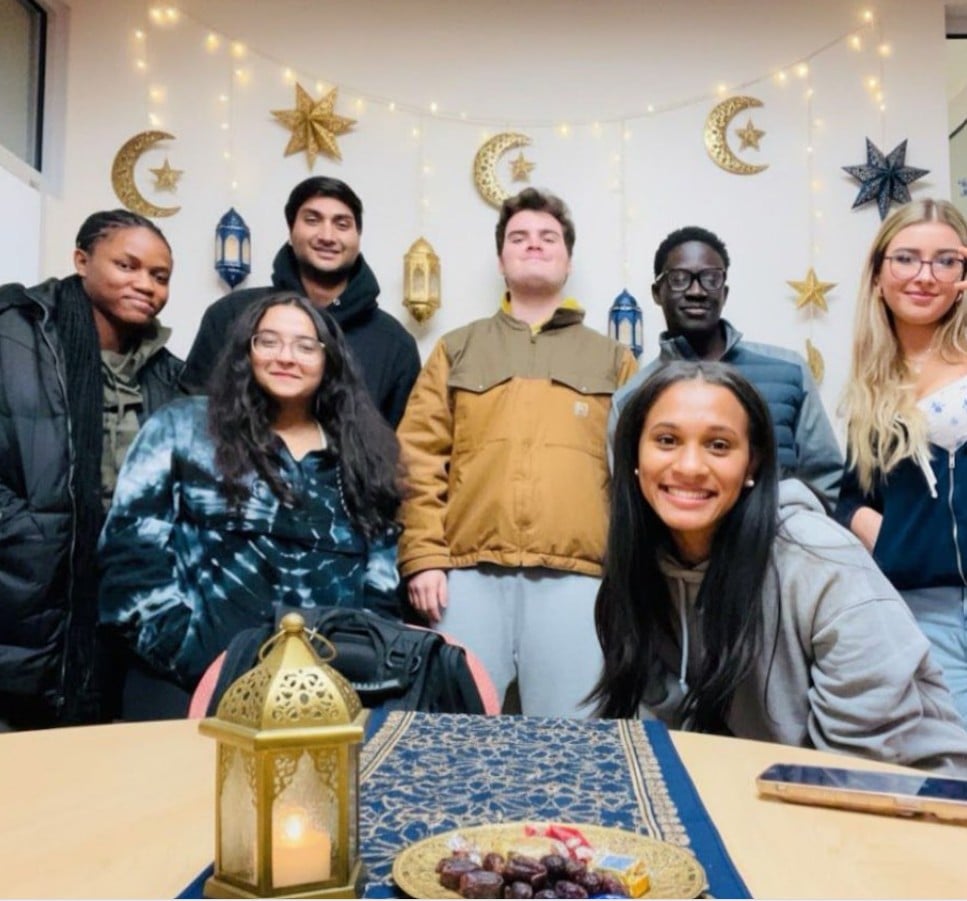
Maria Iftikhar
When you grow up in Pakistan, the Azan, the Muslim call to prayer, becomes part of the rhythm of your days. My parents always told me that Islam teaches respect for every faith, and that true belief is reflected in how we treat others. I learned that not by speaking, but by listening.
As part of the United Nations Association Pakistan, I joined a winter drive collecting clothes for underprivileged families, most from Christian neighborhoods. When I handed a woman a blanket, she said softly, “Thank you for remembering us.” Those words never left me. It wasn’t the blanket that touched her, but being seen , that quiet act of acknowledgment taught me what compassion really means.
After that, I began to notice the quiet gap between Muslim and Christian communities in Pakistan. So, for Christmas, my sister and I baked over fifty cookies and took them to a Christian school in Korangi, Karachi. We spent the afternoon celebrating with the children singing carols, sharing stories, and realizing that kindness speaks every language.
At The College of Wooster, I carried those lessons with me. As a member of the Muslim Students Union, I helped organize Ramadan drives and interfaith Iftar dinners where students from all backgrounds shared meals and stories. We celebrated Diwali, Hanukkah, and even I hosted Easter egg distributions, the first ever on campus not to blur our faiths, but to honor one another’s.
Outside MSU, I volunteered at the campus church, helping with Sunday outreach and community meals. The pastor once told me, “Faith is service and service is listening.” Even as a Muslim, I felt deeply at home there.
Now, at Pacific Lutheran University, I work as the student Program Assistant at the Wild Hope Center for Vocation, helping students explore purpose and belonging.
Across every space I’ve been mosque, church, or classroom, one truth stays with me: faith is not a boundary; it’s a bridge. And listening is how we cross it.
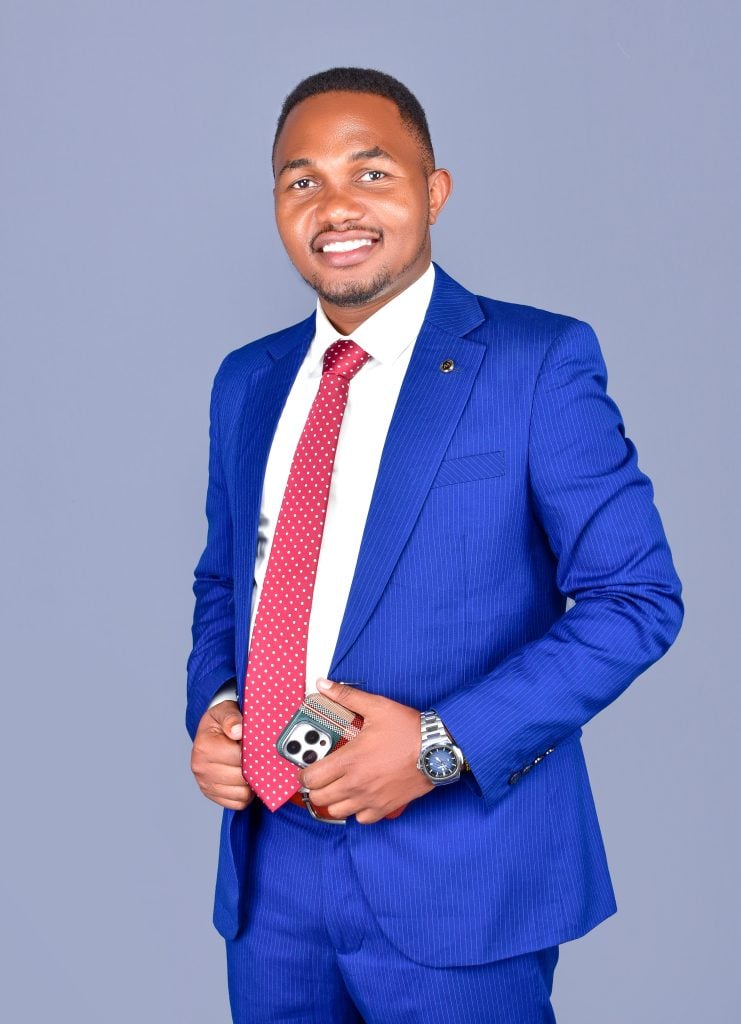
Alex Pacims
To me, interfaith cooperation is about people from different beliefs coming together, not to erase their differences, but to find common ground in shared humanity. It’s like a group of strangers, each carrying their own unique light, converging to illuminate a path forward together. I recall a moment from a community project a while back, where I helped organize a food drive. Among the volunteers were a Muslim imam, a Christian pastor, and a Hindu teacher, all working side by side. We didn’t debate theology; we just packed boxes, laughed over small mishaps, and shared a meal afterward. The imam brought dates, the pastor shared a prayer, and the teacher told a story from the Vedas about generosity. It wasn’t about agreeing on everything—it was about respecting each other’s hearts and hands in service of a common goal. That day, I saw how faith, in all its forms, can build bridges when the focus is on doing good together.
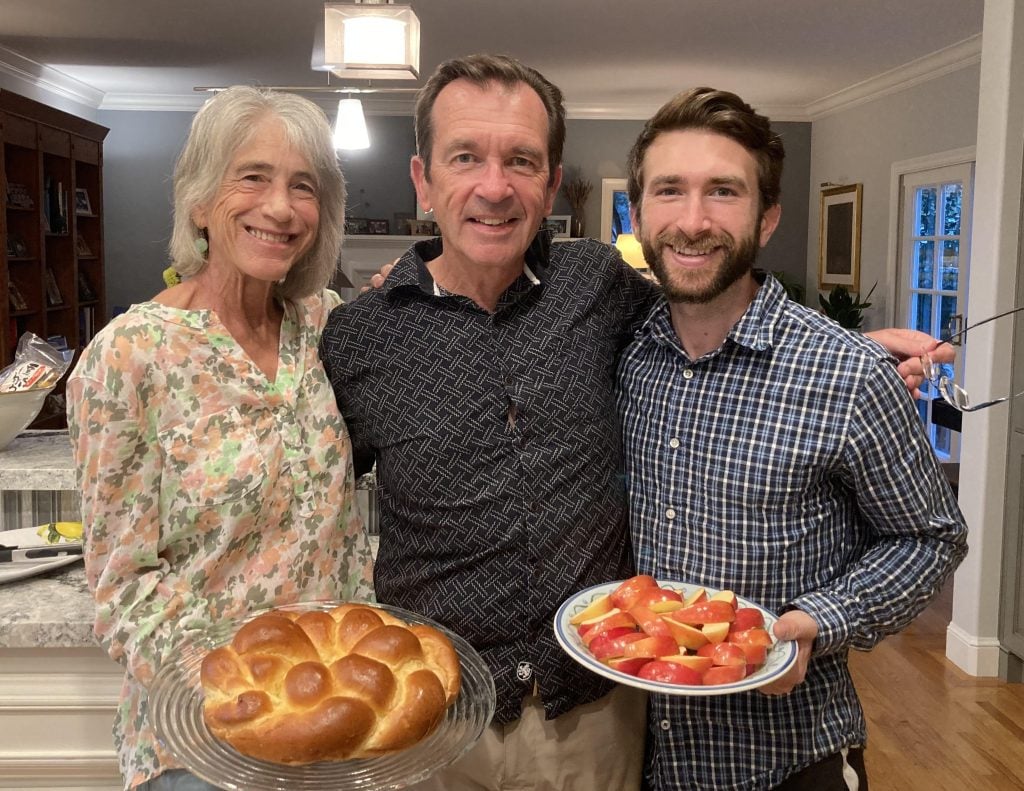
Thomas Plante
I am living Interfaith America personally as well as professionally. My wife of 37 years (together 42 years) is Jewish while I am Catholic and we are both active and engaged within our respective faith traditions. My son’s first line of his college application essay was, “Not many people can say that there were more Jesuit priests at their bar mitzvot than rabbis.” His cousin is a head rabbi of the only gay/lesbian synagogue in San Francisco who is partnered with an Episcopal Pauline scholar from Princeton working with gnostic gospel scholar, Elaine Pagels, and my son’s godfather is a Jesuit priest and psychologist at the University of San Francisco.
My wife and I jokingly say that what brought and an engaged Jewish gal and Catholic guy together was guilt…just guilt about different things! We have belonged to both a Jewish synagogue (the one my wife grew up in and her parents were founding members) as well as being members and involved with the Catholic Community at Stanford University. My wife, also a psychologist, sees Jesuit in her private practice too. We love it! We have great dinner conversations as one can imagine!
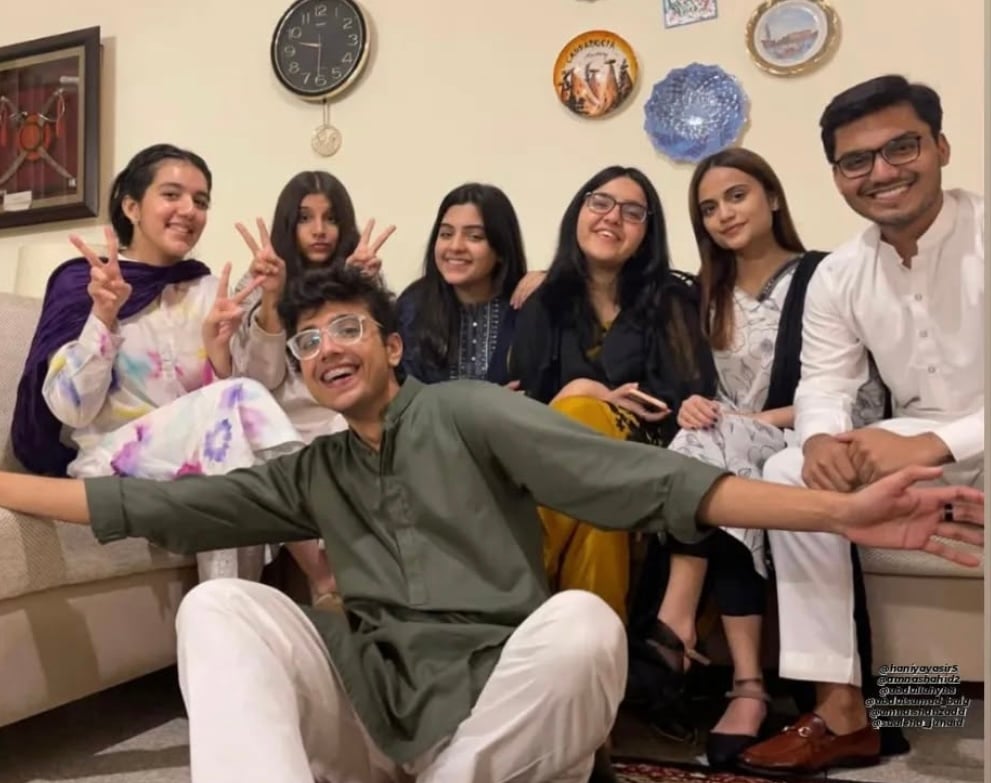
Sanjina Kumari
Growing up as a Hindu minority in Pakistan, interfaith cooperation was never just an abstract idea bur rather it was woven into my everyday life. From an early age, I learned that building bridges across faiths could be both a challenge and a source of deep purpose.
One moment that stays with me is when my school organized a Ramadan food drive. Most of my classmates were Muslim, but I decided to join in the effort to prepare and distribute Iftar meals. At first, I worried about whether I would be accepted, given my minority identity. But as we worked side by side from cutting fruit, packaging meals, and delivering them to families in need. I realized that generosity transcends belief systems. One classmate told me, “What matters is that you showed up.” That simple comment shifted my perspective: service could be a universal language of belonging.
Later, I helped celebrate Christmas at under-resourced Christian schools in my town. Singing carols in a language I barely understood and sharing small gifts with children, I again saw how joy and dignity can flow when communities step into each other’s traditions with openness. These experiences taught me that interfaith cooperation is not about erasing differences, but about honoring them while working toward a shared good.
Now, as an international student at Pacific Lutheran University, I carry these lessons into my role as an International Peer Advisor and Diversity, Justice, and Sustainability Fellow. Supporting students from over 50 different backgrounds, I have seen how faith, culture, and worldview shape the way people seek community. Every conversation reminds me that interfaith harmony isn’t just possible but that it’s necessary.
To me, interfaith cooperation means showing up, even when you feel like an outsider, and trusting that the act of building together creates belonging. It means recognizing that our differences are not barriers, but bridges waiting to be built.
Dylan Dominic
One of the most impactful experiences I had working across faith traditions was during a community service project aimed at addressing food insecurity in my city. The project brought together a diverse group of volunteers from various faith backgrounds, including Christian, Muslim, Jewish, and secular groups. Initially, there were some natural concerns about how different beliefs would impact the collaboration, but it quickly became apparent that our shared values of compassion and community service transcended our differences.
We organized a series of food drives and distributed meals to families in need. What struck me most was how each faith group contributed in their own unique way. For example, the Muslim volunteers were especially committed to providing Halal meals, while the Jewish volunteers shared cultural recipes that included dietary restrictions important to their faith. The Christian group took the lead on setting up meal prep stations, and the secular volunteers coordinated the logistics of collection and distribution.
Throughout the project, I learned that our differences weren’t barriers; they were sources of strength. Each tradition brought its own perspective, which enriched the overall mission. It was a reminder that, while our faiths might offer different spiritual frameworks, our shared humanity was what mattered most. The experience also demonstrated that interfaith cooperation doesn’t just make us more effective in solving problems—it fosters deep, lasting connections that transcend religious labels.
The food drive ended up being a huge success, but more importantly, it showed me that when we look beyond our differences and focus on what unites us, we can achieve more than we ever thought possible.
Taulau Tupua
As a chaplain resident at Providence Little Company of Mary, I walk into hospital rooms where faith—or the absence of it—shows up in raw, unfiltered ways. I recently visited a patient who identified as spiritual but not religious, sitting with deep grief after the loss of his partner. He was wary of “church people,” and I could sense the wall go up as soon as I introduced myself as a chaplain.
Instead of offering scripture or answers, I simply asked, “What’s been hardest about this for you?” That one question opened the door. He spoke about love, loss, and the ache of feeling misunderstood in spaces of faith. By the end of our visit, he thanked me—not because we shared beliefs, but because I listened without judgment. That moment reminded me that bridge-building isn’t always about theology—it’s about presence, humility, and respect.
Before chaplaincy, I served as Associate Pastor of Youth & Mission at First Christian Church of North Hollywood. There, I witnessed how young people navigated their own divides—faith and doubt, activism and burnout, inclusion and tradition. We hosted interfaith service projects where Christian, Jewish, and Muslim teens worked side-by-side. They didn’t need to agree on doctrine; they just needed a common purpose and space to be real with each other.
These two settings—hospital and church—couldn’t be more different, yet they’ve taught me the same truth: bridge-building begins with deep listening. Whether comforting someone in crisis or empowering youth to lead with compassion, it’s about choosing connection over control.
Building bridges across divides doesn’t mean erasing difference. It means honoring it—and showing up anyway. In a fractured world, that feels like sacred work.

Asif Khurshid
Today I want to share my journey of breaking barriers and working for interfaith harmony in Pakistan.
This is the story of how I moved from walls to bridges, from division to harmony.
In my early years, I lived in a conservative, sometimes extremist environment, where the idea of interacting with people of other religions wasn’t just rare — it was unthinkable. As I belong to a religious background, I also joined religious organizations at the college level.
It was a life of walls… not bridges.
Everything changed when I went to university.
For the very first time, I sat beside Hindus, Sikhs, Christians, and others — not as strangers, but as equals. These encounters transformed me.
I learned to see the world through their eyes, and in doing so, I discovered the true beauty of coexistence.
I began attending interfaith gatherings so
I listened, I spoke, I shared.
But soon I realized something was missing.
The conversations were meaningful — but actions were weak.
That’s when I came up with the idea of the Pakistan Youth Council for Interfaith Harmony.
What started as a small initiative has now grown into a nationwide movement with more than 3,000 active members from universities across Pakistan — representing diverse religious and cultural backgrounds.
I brought together a core team of young leaders — Hindu, Sikh, Christian, and Muslim — united by one vision: to build an inclusive society where communities don’t just coexist, but thrive together.
We celebrated each other’s festivals, exchanged gifts, and extended support across religious lines.
We organized more than 300 activities — workshops, seminars, roundtable discussions, sports events, walks, even interfaith climate activism — across all provinces of Pakistan.
And slowly but surely… we began to see the walls of mistrust crumble.
Together, we created more than 200 documented success stories of young people who were inspired by our work.
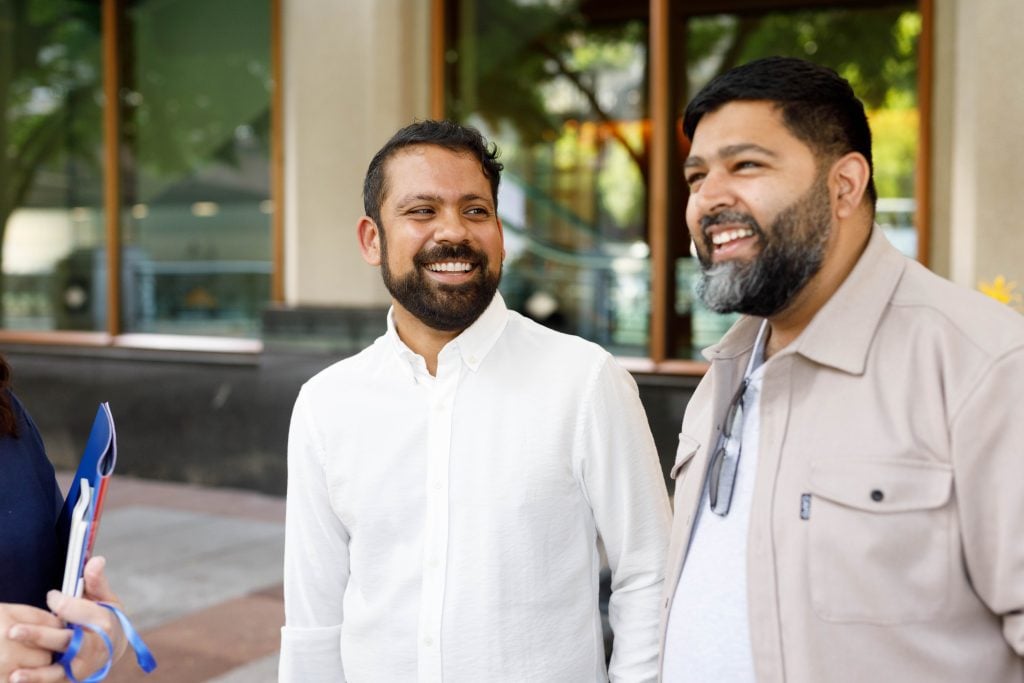
Parth Bhansali
Interfaith cooperation has been a constant thread in my journey, shaping how I lead, work, and show up in the world. Growing up as the child of Indian immigrants, I saw early on how identity, faith, and culture shape the way people experience life. Those experiences built my curiosity and my drive to connect with others across differences. Over the years, that has carried into both my professional career and my community work.
In the corporate world, across industries such as technology, travel, and consumer packaged goods and manufacturing, I have learned that no two colleagues or clients are the same. Success has always come from understanding different perspectives and finding common ground to solve problems together. Whether building partnerships, leading teams, or navigating complex negotiations, I have seen firsthand that inclusion and cooperation lead to the strongest results. That belief has also fueled my DEI work, particularly focused on how interfaith cooperation can play a role in shaping healthier and more inclusive organizational cultures.
For more than a decade, my relationship with Interfaith America has deepened and sustained this commitment. Their resources, training, and community have helped me translate the values of curiosity, respect, and collaboration into meaningful action. Through my Executive MBA at Marquette, I continue to build on those lessons, not only by participating in interfaith leadership development, but also by earning an ELN grant to lead an interfaith certificate program for my cohort. Guiding classmates through interfaith dialogue and reflection reinforced for me that real change does not come from abstract theory, but from personal stories and lived experiences that open hearts and minds.
Beyond my professional and academic life, I have spent over a decade as a camp counselor through Rotary, mentoring young leaders from diverse backgrounds. Year after year, I watch students from different faiths and cultures collaborate, share their traditions, and build friendships that cross divides. Those moments remind me that interfaith cooperation begins in small, authentic ways and grows into lasting impact.
For me, interfaith work is not just something I do, it is how I live. It means building bridges wherever I am: at work, in school, or in the community. It means recognizing that our differences are not barriers but opportunities to build something stronger together.
#MyInterfaithStory
View this profile on InstagramInterfaith America (@interfaithamerica) • Instagram photos and videos
Let’s build an interfaith America, where people of all beliefs work together for the common good.
Interfaith america magazine
Interested in writing about your interfaith experience? Reach out to us to pitch a story.
We appreciate your feedback, ideas, and questions.
Allie Vroegop & Rachel Crowe
Magazine Team
Interfaith America
Copyright @ 2024 Interfaith America. All Rights Reserved. Interfaith America is 501 (c)(3) non-profit recognized by the IRS. Tax ID Number: 30-0212534